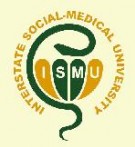Health worries are bubbling across the pond.
Dear readers, we have combined two messages arrived across the pond about concerns of the threat of bacterial and viral infections. They look pretty grim but we (AIHD team) is not so pessimistic, and see the light at the end of the tunnel. Please read our comments below.Superbug (MRSA) threat grows as regulator stops policing antibiotics in animal feed
The day of the superbug has just got closer with the decision by health regulators to end compulsory restrictions on the use of antibiotics in animal feed. America’s Food and Drug Administration (FDA) says it does not have the resources to enforce antibiotic levels in animal feeds, but instead wants the agri-business voluntarily to observe safe and reasonable usage.
Even with the FDA acting as policeman, 80 percent of antibiotics sold in the US, has been going into animal feed, which eventually enters the food chain, and ends up in our blood stream, and stomachs. As has been reported recently, 7% of meat is infected by antibiotic-resistant MRSA, and is contributing to the evolution of this superbug.
Under pressure from the health groups, the FDA announced several days later that it is imposing tighter restrictions on the use of cephalosporin, a special class of antibiotic that is routinely injected into eggs and used to treat infections in cattle. In 2008, the FDA announced a complete ban on cephalosporin in cattle, but withdrew the proposal following a major outcry from agri-business. However, cephalosporin use is small “danger” compared to penicillin and tetracycline (brand names: Ala-Tet, Panmycin, Sumycin), the two most common antibiotics put into animal feed and farm water. (Sources: ANH-USA; New York Times, January 4, 2012; FDA Federal Register, Vol. 76, Issue 246).
Tamiflu drug co hides research into its ineffectiveness and dangers
Drug giant Roche makes £1.9bn a year from the sale of Tamiflu, the world’s major antidote to flu epidemics – but it is been hiding evidence that suggests the drug is not effective and could even damage the immune system. Tamiflu (oseltamivir) blocks the body`s own natural defenses against the flu virus, and increases the risk of vomiting in children. It`s also little better than a placebo, or sugar pill, at preventing flu or reducing the length of the illness. But this new evidence came to light only when researchers from the Cochrane Collaboration used freedom of information laws to force Roche to release data that had never been published.
Worse, the suppressed data even contradicts public pronouncements that Roche had made about Tamiflu, an anti-viral, including claims that the drug had no adverse effects and did not damage the immune system.
Governments around the world have been stock-piling supplies of Tamiflu to give to key workers in the event of a flu epidemic. The UK government has bought enough Tamiflu, and Relenza, another anti-viral drug, to give to half of the nation. Roche made £1.9bn from global sales of Tamiflu in 2009. (Source: Cochrane Collaboration, January 18, 2012; doi: 10.1002/14651858.CD008965.pub3).
AIHD comment:
Despite of this troublesome news the reality is not so grim. Firstly, let me assure you that we do have a remedy to fight not only MRSA but STAPH (Staphylococcus Aureus) infection as well. These remedies called Essential Oils. Several oils are very efficient in fighting these bacteria. They are: “On Guard” blend, and single oils Melaleuca, Oregano, Frankincense, Geranium; all from DoTerra. AIHD works with this company for three years, and we can certify high quality and efficiency of their products.
Secondly, Essential Oils (EO), mentioned above, provide effective defense against viruses. They are able to inhibit, stop the development, and replication of the viruses. Having very short molecules, EO easily penetrate membranes of our cells, and destroy the viruses. If you need additional information about EOs please contact AIHD office or if you`d like to order it from our web store here is the URL: AIHD Store - http://amerihum.ipower.com/store/page4.html








